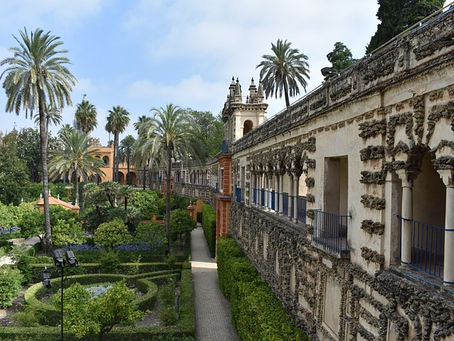Your Andalusian Culture Trip
During your Andalusian culture trip you will immerse yourself in the history, the lifestyle and the people of southern Spain. After all, these regions have so much more to offer than summer, the Mediterranean sea and sunshine. From the precious olive oil to the cultural highlights of centuries long gone, as well as the modern pleasures of music and dance, there is so much to discover!
Discover the Autonomous Community of Andalusia
The autonomous community of Andalusia stretches from the well-known Costa del Sol in the South, to the Cádiz and Huelva regions of Spain that border Portugal in the West, up to the provinces of Jaen and Córdoba in the North.
Whilst travelling through this 87,599 km² vast region, you will encounter the Andalusian culture at every step and turn. From its past to the present day, famous Spanish musicians, artists and authors have always left their mark, as have the high cultures that once called Andalusia their home. You will encounter Roman ruins, traditional Muslim buildings, erected by the Moors and famous cities that played an important role in shaping the autonomous community of Andalusia into what it is today.
The current population of Andalusia is around 8.4 million with the capital city of Seville reaching 685,234 inhabitants, followed by Málaga with a population of 571,026. This enormous region, therefore, boasts cities that are never too big to discover on foot, the best way to immerse yourself in the Andalusian culture.
From the Moorish Al Andalus to the Statute of Autonomy
After the Romans laid the foundations for a modern civilization, the Moors' rule marked another significant influence on the rich Andalusian culture. Relics of the Al-Andalus state from the early 8th until the late 15th century can be found at every corner of this region - the most famous being the Alhambra in Granada and the Mezquita in Córdoba (both World Heritage Sites).
It was a period of prosperity that ended with the reconquest by the Crown of Castile. Under Catholic rule many of the Muslim sites were repurposed. They now host cathedrals rather than mosques, while the palaces and large estates were redecorated to the taste of the Christian kings and queens. Today 78.8% of Andalusians identify themselves as Catholic. It is no surprise, that religion still plays an important role in the Andalusian culture.
When Andalusia gained the statute of autonomy in 1978, Seville was soon after (1982) crowned the new capital of this Spanish autonomous community. The city had played a central role not only in Spain but as well as Europe and the world. A trading monopoly with the Americas gave Sevilla great wealth and power.
Even though this privilege was lost to Cádiz after a plague had wiped out the majority of the population, Seville managed to put itself back into the spotlight. The city hosted the Ibero-American Expo in 1929, which still has an impact on the life of the Sevillians today.
Women and children in flamenco dress are among many of Andalucia's unique traditions. These traditional dresses are usually worn during the Feria, a local festivity that takes place in every town of Andalusia at different times of the year. One of the most famous is the Feria de Agosto in Malaga.
The flamenco dance has its origin in the Gitano culture of Andalusia of the 18th century, with Jerez de la Frontera being named as one of its birthplaces. But it is not the only cultural highlight southern Spain has to offer.
During the Semana Santa, the holy week, the people flock to the streets to see the processions that last long into the night. A sight that is equally unique to Andalusia as the food, the language and the people.
Be Part of the Holy Week and Further Festivities
FAQ
What traditions does Andalusia have?
Andalusia has many traditions that are unique to this region and can even differ between the various towns. Flamenco, the Semana Santa (Holy Week), La Noche de San Juan are just to name a few. If you want to find out more, www.andalusian-adventure.com is the best place to do so.
What are Andalusian people known for?
Spain is a big country with many national differences. Andalusians are known for their dialect, which could be descripted as a language in its own right. The economic situation mainly consists of tourism and agriculture. The Andalusians are also known for their joy of life, reflected in the tradition of Flamenco and their food.
Is Andalusian an ethnicity?
Andalusia itself is regarded as a historical nationality and the region's people are indeed a European ethnic group, even though we wouldn't go so far as to describe them as an ethnicity independent of Spain and Europe.





